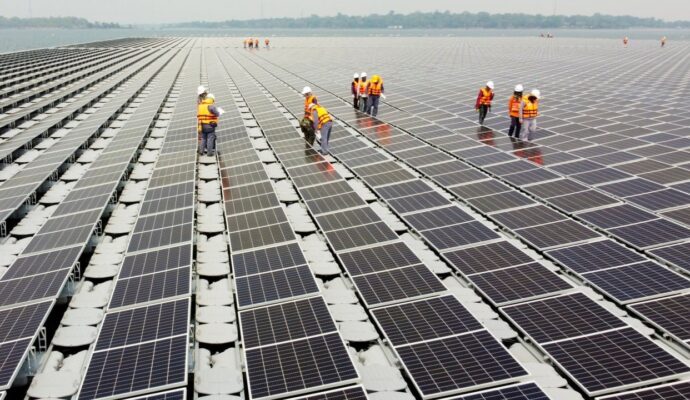
“Given the lack of major reform announcements, year to date, similar weakness in 2024 should be expected, and growth may slacken even more next year as a result of adjustment pains if Beijing announces concrete reforms,” the report said.
A slower economic growth rate could also mean that China’s dethroning of the US as the world’s biggest economy “would not happen in this century, let alone this decade”, the report added.
“This change in expectations has global implications. For developing countries, the relative allure of liberal markets versus China’s “state capitalism” approach will shift, in ways that require policymaker and business leader attention.”
Chinese economists and former officials have also called for reforms, and expectations have mounted for a strong signal from top leaders in the run-up to the third plenum of the Communist Party’s 20th Congress.
These third plenums are convened around a year after a new party Central Committee is installed, and they traditionally revolve around economic issues.
Rectifying policies is indeed a reform
“If we can make it, we are set to regain the reform dividend and spur economic growth,” Wei added.
Yang Weimin, a former deputy director of the Office of the Central Leading Group for Financial and Economic Affairs, said at last month’s Bund Summit in Shanghai that the current situation called for a course correction in policies.
“All ministries and provincial authorities should review the host of measures, including those introduced during the pandemic, to rectify those that run counter to the principle of the market’s decisive role in resource allocation and those that interfere with or restrict business operations and consumption,” Yang said.
“Rectifying policies is indeed a reform,” he added.
China’s manufacturing rebounds in latest sign of stabilising economy
China’s manufacturing rebounds in latest sign of stabilising economy
The Pathfinder report also said Chinese leaders should allow for “robust” debate on structural slowdown and reform, as one of the measures to instil optimism for economic growth in 2024.
“It is a positive sign that Chinese economists are discussing the state of progress on macroeconomic reforms, but there is a long path between an academic discussion among economists and formal officials and the actual implementation of difficult structural reforms by China’s top leadership,” the report said.
Hopes are growing after Xi’s speech at a September Politburo study session dedicated to international trade and opening up was widely interpreted as being pro-economy and pro-business.
“Modest pledges of reform have been rolled out regularly this year, so there is reason to expect some more at the third plenum. Indeed, since none of the reforms thus far are sufficient to deal with the big problems now in evidence, the odds of a more significant announcement are rising,” said David Rosen, a partner and co-founder of Rhodium Group.
In the past, Beijing was able to kick the policy can down the road; today, they are at the end of that road
The report also said that China had strayed further from market norms in the openness of its innovation system and that it has not improved market competition, as seen in the rise of state ownership in the overall economy and in the fickle regulatory environment.
“In the past, Beijing was able to kick the policy can down the road; today, they are at the end of that road and need to address the present problems,” the report said.
It also suggested that Beijing stop publicising “emblematic” GDP growth targets and instead reveal its employment and inflation goals, to help curtail any “political imperative” and minimise the risk of frivolous efforts to grow GDP. The report said this could be “one of the best things Beijing can do to improve the quality of growth and policymaking”.
“The central government must absorb local-expenditure responsibilities or identify responsible resourcing strategies,” it said.

